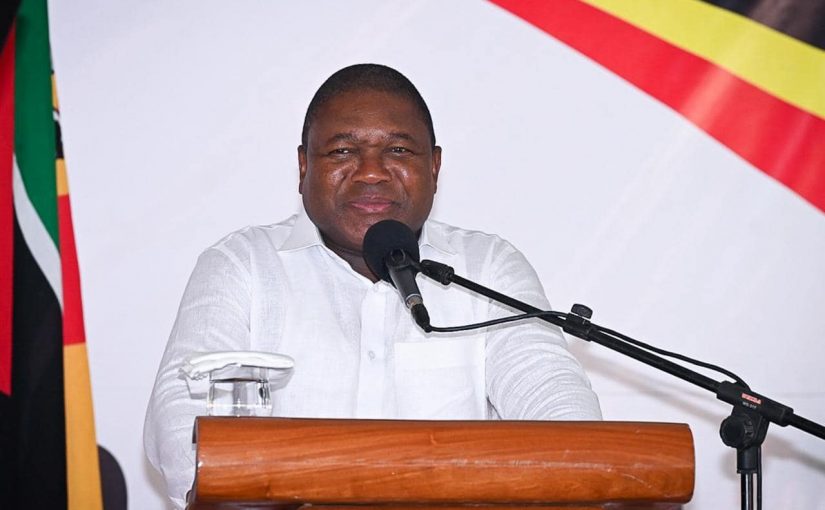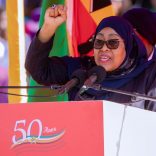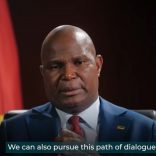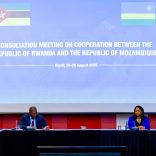Samia assures Mozambique of Tanzania’s commitment to strengthening bilateral ties
Mozambique: Clashes, shouting will not solve teachers’ problems – president

Photo: Presidente Filipe Nyusi /Facebook
Mozambican president Filipe Nyusi on Wednesday asked teachers for “consideration and dialogue”, saying that “confusion and shouting” won’t solve the problem, two days after the professionals marched for overtime pay in Maputo.
“I would like to ask you once again for your utmost consideration. In difficult and emotional times we must always opt for dialogue at work, we must assert our professional position, as educators and with the ability to speak, without this stance that I am suggesting meaning allowing injustice to be done to teachers,” said Filipe Nyusi, during the opening ceremony of the 2024 school year, in the district of Dondo, in Sofala, central Mozambique.
The start of the school year comes at a time when teachers are demonstrating, demanding overtime pay and better working conditions, and threatening not to take on extra classes this year.
The teachers also want the executive to create the conditions to put an end to overcrowded classrooms, threatening to prevent more than 50 pupils from entering a single class, as is often the case in the country.
On Monday, dozens of primary and secondary school teachers marched in the city of Maputo demanding a solution to the problem, after another group of teachers marched in the city of Matola earlier this month, complaining about the same problems.
For the president of Mozambique, “confusion and shouting” will “in no way” resolve the situation of the teachers, and he therefore called for dialogue and common sense on the part of the professionals.
“Dialogue and consideration will avoid the discontinuation of the learning process due to constant threats to stop classes,” said Filipe Nyusi, thanking the teachers for their “professional attitude”, despite the demonstrations.
School cost. around €11 million, fully funded by Tzu Chi Foundation
The opening of the school year took place at the Mafambisse administrative post, coinciding with the inauguration of Mozambique’s largest secondary school, a project financed entirely by the Tzu Chi Buddhist foundation and costing around €11 million.
On the occasion, Filipe Nyusi also said that, as part of the inclusion of the total of 215,710 people with disabilities in the country, 106,479 are in the education system, and that sign language is also being introduced into the education of Mozambicans.
“It’s not easy because it’s a slightly more expensive form of education than the other, but the important thing is that it can’t be abandoned, so we already have half of the disabled people on board,” said the head of state.
Filipe Nyusi also said that the country has 2,894 schools that use bilingual teaching methods, benefiting a total of 886,998 pupils in Mozambique.
“Despite the successes recorded, there is still a lot to be done in the education sector and we want to do more,” concluded Mr Nyusi.
A week ago, Mozambique’s ministry of education admitted that it has a shortfall of 10,000 teachers out of a total of 12,000 that should be hired this school year.
The executive plans to hire only 2,803 teachers, with priority being given to maths, chemistry and physics, in order to reinforce the 170,000 or so active teachers.
There are also plans to inaugurate 10 new schools, and 77 others have been expanded by increasing the number of classrooms, in the provinces of Zambézia, Sofala and Tete, in the centre, Cabo Delgado, Nampula, in the north of Mozambique, and in Inhambane and Maputo, in the south of the country, according to the ministry of education.













Leave a Reply
Be the First to Comment!
You must be logged in to post a comment.
You must be logged in to post a comment.